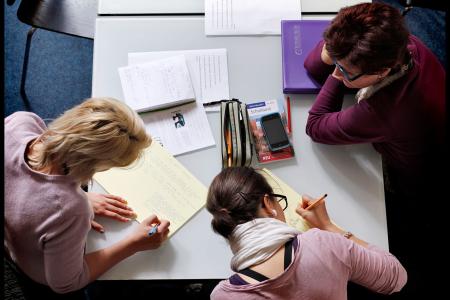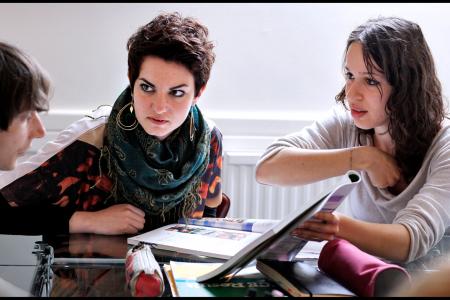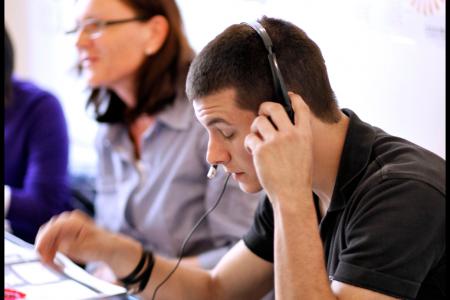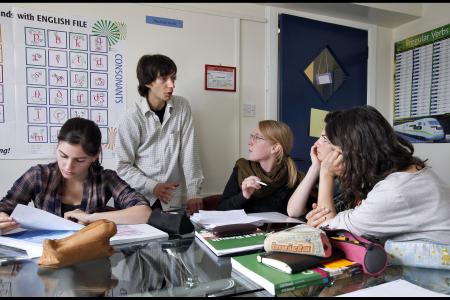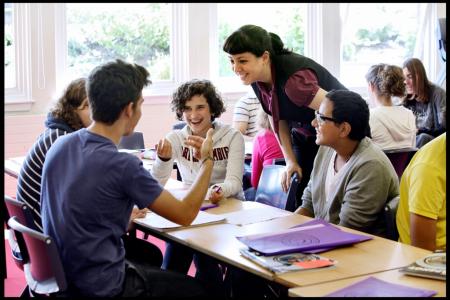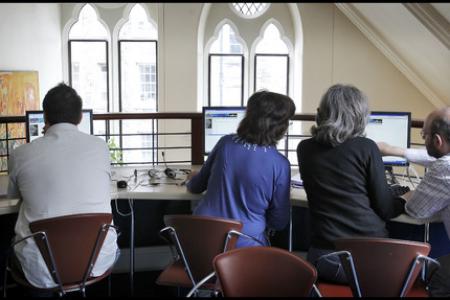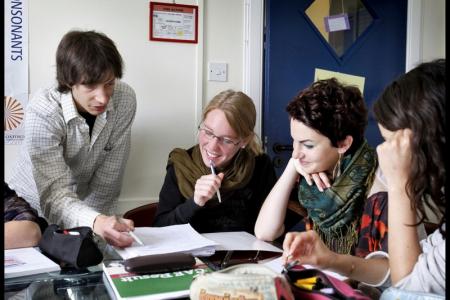Teachers choose this course to be exposed to new ideas and techniques, to meet colleagues from around the world and share practice, and to develop professionally in a supportive and inspiring learning environment. Our courses are aimed at overseas teachers engaged in planning and/or delivering ELT programmes. The courses provide training for teachers whose first language is not English.
Our week-long Storytelling course is designed for teachers who want to integrate stories and storytelling into their classes, and focuses on developing critical and creative thought with minimal resources. This is paired with our Pronunciation course to create a stimulating and challenging two-week course.
Course aims
a) Storytelling
To extend your methodology and practical teaching techniques and skills for using storytelling in the classroom
To examine and reflect on your own approaches and attitudes to teaching and learning
To develop an awareness of how storytelling can contribute to learning and reflect on your own practise and that of others
To discuss and share ideas, problems, methods and techniques with peers from other parts of the world
To begin to develop a storybank and share traditions with others from different countries and cultures
To adapt and develop your storybank to make it relevant to your own teaching context
To develop techniques for using storytelling in the classroom to increase learner engagement and motivation
b) Pronunciation
To become aware of the key role that phonology plays in improving communication for all students at all levels
To recognise the challenges that English presents when learning and improving speaking and comprehension skills
To give participants the opportunity to understand the rules and structures that can be used to improve communication through speaking and understanding and look at how to apply these through the supporting activities, tasks, and resources
Course programme
- Preparation
All participants are required to fill in a pre-course questionnaire. It is very important that this is returned at the earliest opportunity as the course is pre-planned based on this. The course content is outlined and discussed on the first afternoon, and is then adapted as appropriate. Participants should bring some examples of stories from their own countries.
Description of training content:
WEEK 1 (Storytelling)
1) Monday
- What is storytelling: Introduction and establishing course prioritie
- Storytelling and learning: How storytelling can be used in a variety of learning contexts
2) Tuesday
- Building your storybank: Harvesting the storytelling tradition
- Techniques for engagement 1: Building your toolkit
3) Wednesday
- Techniques for engagement 2: Building your toolkit
- Meeting your learning objectives: Using your tools in context
4) Thursday
- Observing a class in action: Demo lesson and preparation for micro-teaching
- Putting it into practise 1: Microteaching and feedback
5) Friday
- Putting it into practise 2: Microteaching and feedback
WEEK 2 (Pronunciation)
1) Monday
- The world of sound
- The challenges of speaking and understanding English: Letters vs Sounds
2) Tuesday
- Vowel Sounds - 5 Vowel letters; 20 Vowel sounds
- Vowel Sounds. Sound chart. 'Edinburgh'/schwa sound
3) Wednesday
- Consonant Sounds. Voiced/unvoiced
- Consonant Sounds. Final consonant sound verbs t, d, id plurals s, z
4) Thursday
- Word Stress. Rules of syllables and word stress
- Sentence Stress. Rules of sentence stress. Practical applications
5) Friday
- Assimilation, Intrusion, Linking, Intonation
- Practical application of everything learned through "Storytelling'"
During July and August, a supplementary school in the city centre is used due to the number of students. This course may take place at the supplementary school.
In addition to the course programme, a variety of social and cultural activities are available to participants throughout the week, helping them to get to know Scotland.
Przykładowe zajęcia dodatkowe:

basketball, bilard *, bowling *, cycling *, skating *, sport in park, volleyball, piłka nożna

boat cruises, city tour/walk, concerts, cultural activities, cultural events and festivals, guided city tours, guided museum tours, international evenings, live music / music nights, orientation tour, pub and restaurant evenings, sightseeing with a guide, visits to music festivals, ceilidh *

National Museum, National Portrait Gallery, Scottish Parliament, Loch Ness *, Liverpool *, The Lake District *
* zajęcia dodatkowo płatne
Akredytacje



